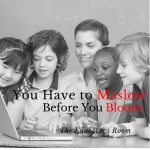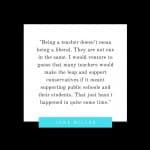By Kate Brennan
This fall universities across the nation will collaborate on Higher Ed’s largest experiment: opening their doors during a worldwide pandemic. Wittingly or not, faculty and students have been enlisted as the test subjects.
Even with coronavirus cases spiking nationally, with proof that individuals of all ages – including children – can die from this highly communicable disease, professors are being denied the opportunity to teach their university courses remotely. Apparently, remote teaching conflicts with the in-person experience the students “desire.” And I started to speculate about when we began to cater to what students want instead of what they actually need.
Was it when we started so obsequiously contorting to receive tenure that we all but forgot why we sought it? Or perhaps when we as adjuncts assumed the roles of full-time employees without the pay and benefits? In our never-ending tarantella to appear necessary, we’ve exhausted the legs on which we used to stand.
A couple of years ago, my university proffered a new dining option to the student body for a vote. They voted overwhelmingly to install a Chick-Fil-A. As professors, we expressed concern. Should we as a university who prioritizes inclusivity support an organization that is openly discriminatory? Isn’t the financing of such an option in direct contrast to supporting the best interest of our significant LGBTQIA+ population? Not to mention that a fast-food chain on campus does not provide adequate nutrition for any human body, let alone our large body of performance students, who work long hours and are reliant on their physical health as artists. “Chick-Fil-A!” The students cried. And so, a Chick-Fil-A was installed as the only dining option besides the cafeteria.
Now, a short time later, there are calls for the fast-food chain to be removed from campus. “This isn’t what we want!” “There’s nowhere to get nourishing food!” “This organization is anti-” well, everything we are teaching them to embrace.
Fast forward to Fall 2020 with a directive to return to in-person classes. Students already prone to anxiety and depression are under further duress from an illimitable series of sanctions provided to ensure their safety. What if their classmates or professors become sick? Perhaps die? Is this what they wanted?
[bctt tweet=”So with a mandate to reconvene face-to-face, you may understand my skepticism in capitulating to a student’s “desire” to meet in-person.” username=””]
But capitulation and sacrifice are not new to educators. This is all but included in the job description. Every year the federal government permits educators an income tax deduction for classroom expenses. The government expects us to spend our own money to not only enhance the classroom but to meet the basic needs of the institutions they will not properly fund. And we do. And lest you think that university professors use hundred dollar bills as bookmarks in the gilded tomes we peruse for our ivory-tower research, know that even after a promotion, an associate professor salary within my school does not constitute a livable wage.
But that’s a trifle. Let’s move onto the big guns, shall we?
And by that, I literally mean big guns. We were aghast at Columbine as an outlier 21 years ago, but now school violence is ubiquitous. Mass shootings serve as sensational fodder for the 24 hours news cycle but quickly fade from our distractible national consciousness. Why are we surprised when our government, our elected officials, and the voting populous have prioritized someone’s right to accumulate weaponry over our children’s right to live? We hold active shooter drills in our schools, cowering in closets without locks using ourselves as barricades. In doing so, we hold teachers accountable for not only the education of the students but also for their physical safety. And instead of demanding our adult government take responsibility, we arm our 5 year-olds with bulletproof backpacks and nightmares, praying our fortresses of erudition to hold fast against the weapons our own leaders allow to be dispersed like candy.
With the catastrophically mounting anxiety and depression in our youth, we as educators have been relegated to the role of psychologists. With the disturbing increase in violence in our schools, we are the police. Why not add another few jobs to the mix by returning to in-person classes when it is obviously not safe to do so? Now we can be doctors, nurses, custodians, and guinea pigs.
Administrations are currently cataloging documents that could be mistaken for McSweeney’s parodies. The litany of regulations to return to in-person teaching is wishful thinking in buildings with faulty HVAC, windows that don’t open, and bathrooms that lack paper towels and soap on a good day. But we’ll print out the school fight song and tape it up above sinks to remind students to wash their hands a full 20 seconds. We can tack that up next to the active shooter drill instructions. Both laminated – to show we are taking this seriously.
The erroneous shove to return to in-person instruction has left teachers out of the conversation and been designed by individuals who have clearly never set foot in a classroom. If we return to the physical classroom aren’t we endorsing the safety of in-person education at a time when it is simply not safe? Aren’t we then complicit in the unavoidable spread of this disease and responsible for its life and death ramifications?
We are not sacrificial lambs and our students are not lab rats. This is an experiment we did not sign up for. We are not here to give students want they want; we are here to provide them with what they need. And we should have the courage to fight for what we all deserve. Our students deserve the opportunity to live long healthy lives without permanent lung damage, neurological impairments, or other yet-to-be-discovered ailments, and we as educators deserve to live long enough to teach them in person again when it is safe to do so.
Kate Brennan is an Associate Professor, Artistic Director of Ignition Arts and co-creator of The Infinity Trilogy.







The complexity of this issue makes the judgement of “erroneous” a bit arrogant, I think. Time will tell, as universities – and all other schools – struggle with the conflicting claims made by their many constituencies as well as try to survive despite the challenges.